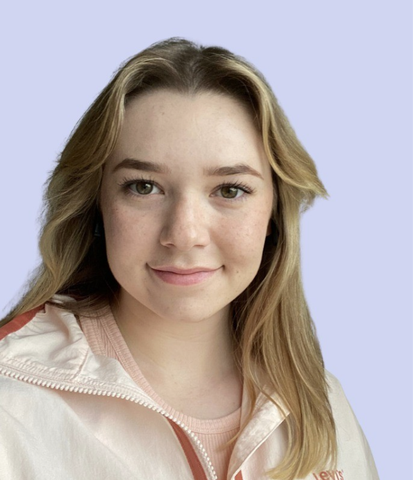When asked why I study biology at university, I often say that it has been my passion since high school. If I am being truthful, it was the subject I had the best grades in, and I wanted to make university as easy of a journey as possible. I am glad that now, as I enter the final year of my undergraduate degree, I can sincerely say biology is my passion.

My academic journey was not a straightforward path. I had considered changing degrees during my first year as an undergraduate student. Like many students, I struggled to connect with what I was learning in my first-year courses. I interned as a junior data analyst at a renewable energy company the summer following my first year and contemplated if engineering was a better fit for me. Fortunately, my second year was much more engaging and fulfilling, as I dabbled in some of the disciplines within the field of biology, including microbiology, biochemistry, and zoology. My classes became more intriguing as I was no longer learning only the fundamentals of biology, but delving deeper into topics in biological sciences. I also became more involved in what I was learning through labs, where I cultured bacteria, synthesized drugs, investigated the effectiveness of antibiotics, and more. By exploring the vast field of biology, I discovered my passion for genetics and evolution, which I now specialize in. I currently enjoy studying topics such as inheritance and genetic disorders, how genetics can help construct evolutionary trees, and how genetic engineering can be used to solve issues.
My second internship at Amino Labs allowed me to combine both my interests in engineering and genetics, as I learned more about the ins and outs of genetic engineering and biotechnology. Interning at Amino Labs provided me with hands-on experience in a biotechnology lab setting, as I assisted in testing out new experiment kits and learned how to use tools such as thermocyclers for polymerase chain reactions. Overall, my internships have provided me with invaluable practical experience, which has furthered my understanding and interest in genetics and allowed me to apply my academic knowledge in new ways.
Some of the over 2,000 anatomical collections from surgeon and anatomist John Hunter (1728-1793)
I continued my academic journey by applying for and getting the opportunity to study abroad at the University of Glasgow. Studying abroad was a fantastic way for me to engage in experiential learning while being exposed to new cultures and traditions. I explored the University of Glasgow’s wide variety of biological collections at its Hunterian Museum—the oldest museum in Scotland. I also travelled to Edinburgh to see the National Museum of Scotland and met the preserved Dolly the sheep, who was a clone made from a cell in 1996 using genetic engineering technology. Learning about and observing both museums’ extensive collections was a unique way for me to further my understanding of evolutionary biology and genetics. Studying at the University of Glasgow was also an opportunity for me to be mentored by experienced faculty members with different perspectives and worldviews.
Some more from John Hunter
As I approach the final year of my undergraduate degree, I am looking forward to how I will continue to develop as a scientist in the future. I value the skills and knowledge I acquired during my university studies, internships, and study-abroad experiences. One piece of advice I’d like to share with students considering studying life sciences is to seek unique and hands-on learning opportunities. Participating in an internship is a fantastic way to do so, as it is an opportunity to engage in experiential learning while developing important work skills. Studying abroad is also a great learning opportunity, as being exposed to different teaching styles, academic perspectives, and course offerings can be a very rewarding experience. Lastly, I wish the best of luck to any students embarking on their academic journeys!
The Hunterian Museum in the University of Glasgow